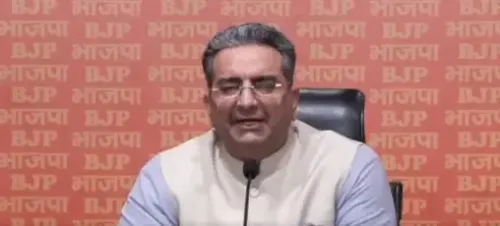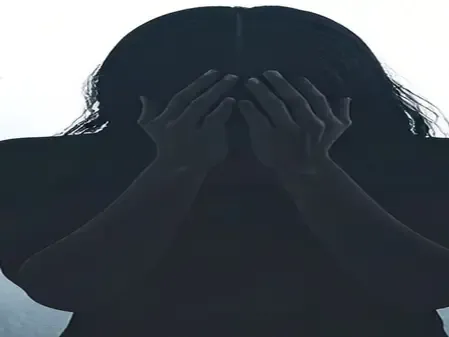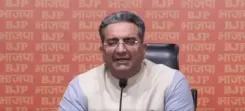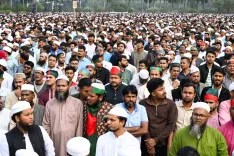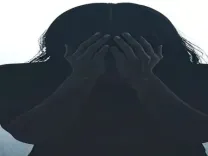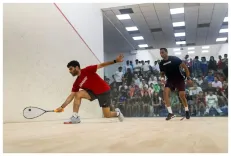Is Impeachment Enough or Is Criminal Prosecution Needed in Justice Varma's Case?
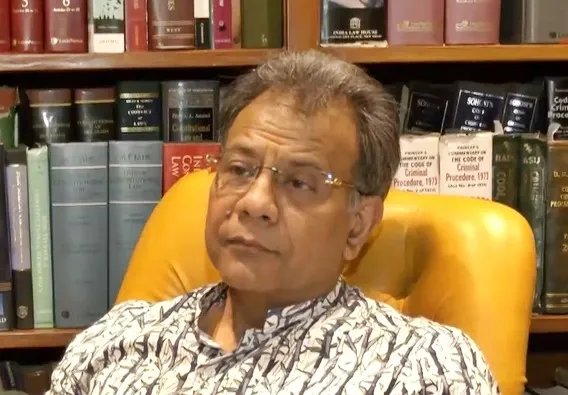
Synopsis
Key Takeaways
- Impeachment is being considered against Justice Varma.
- Criminal prosecution is also deemed necessary by legal experts.
- Integrity of the judicial system is under scrutiny.
- Public trust in the judiciary is at stake.
- Accountability and transparency are essential for justice.
New Delhi, May 28 (NationPress) As the Central Government weighs the possibility of initiating an impeachment motion against Allahabad High Court judge Justice Yashwant Varma, senior advocate and former Additional Solicitor General Aman Lekhi stated on Wednesday that impeachment alone is inadequate and that criminal prosecution is also essential in this matter.
This situation arises following the revelations made by a Supreme Court-appointed internal committee, which determined that Justice Varma possessed unaccounted cash at his official residence in Delhi. The government is considering the impeachment motion for introduction during the Monsoon Session of Parliament, slated to commence in mid-July.
In an exclusive interview with IANS, Lekhi asserted: "This is justified and should transpire. The incident tarnishes the integrity of the judicial system. To elaborate: a judge represents the pinnacle of justice, the core of our legal framework. All the principles that uphold our system - transparency, fairness, and accountability - are personified in a judge. It is this embodiment that garners public trust in judicial rulings."
"When such incidents occur, it casts doubt on the very process we have faith in. These doubts erode confidence in the judiciary and the legal system as a whole, leading to potential systemic collapse. In such circumstances, corrective measures are vital, and impeachment is a constitutionally endorsed means to achieve that. However, I contend that impeachment alone is insufficient in this case. My evaluation indicates that criminal prosecution is also imperative."
Lekhi further discussed the constitutional framework surrounding impeachment.
"Depending on whether it is proposed in the Rajya Sabha or Lok Sabha, a designated number of Members of Parliament must advocate for it. Subsequently, the Speaker or Chairman reviews it, and a committee is established. This committee, consisting of three senior judges, conducts a thorough examination of the matter."
Nonetheless, Lekhi expressed doubts regarding the efficacy of the impeachment process as it currently stands.
"There exists a level of collaboration among institutions today, and frequently, one branch does not hold another accountable. Impeachment is inherently a political mechanism, and political processes have not proven very effective in recent times. Ideologies, biases, and political interests often complicate matters. Therefore, I harbor concerns regarding the efficacy of the impeachment process alone. In serious situations such as this, there should also be criminal prosecution as a viable remedy."
When asked if Justice Varma should resign prior to the commencement of impeachment proceedings, Lekhi remarked: "That is contingent on him. Justice Yashwant Varma had ample opportunity to respond appropriately since the controversy surfaced. Resigning would have been the correct course of action if he believed in his innocence or deemed the allegations baseless. Regrettably, he squandered that chance. Instead, we have witnessed obstinacy."
"However, this issue transcends one individual’s defiance—it highlights a pervasive culture of impunity. This culture challenges the system as the public loses faith in its effectiveness. In my perspective, this is not merely personal stubbornness; it illustrates systemic failure. Until the rule of law is firmly established in such cases, the credibility of the system will continue to diminish," he added.
Lekhi cautioned of a more significant crisis if decisive actions are not taken.
"Individuals will start to question the conduct of judges outside the courtroom. A crisis of confidence and credibility is imminent. This moment represents a pivotal point in our national trajectory. It will test our moral integrity. The pressing question is: can we make tough decisions and pursue what is right, even when it is challenging?"
In conclusion, Lekhi emphasized that mere institutional mechanisms are insufficient unless they are enforced with earnestness.
"This is not solely about one judge or one incident. It’s about whether our institutions possess the strength and resolve to cleanse themselves. We must guarantee that justice is not only achieved but also perceived as such—clearly, transparently, and fairly," he stated.



